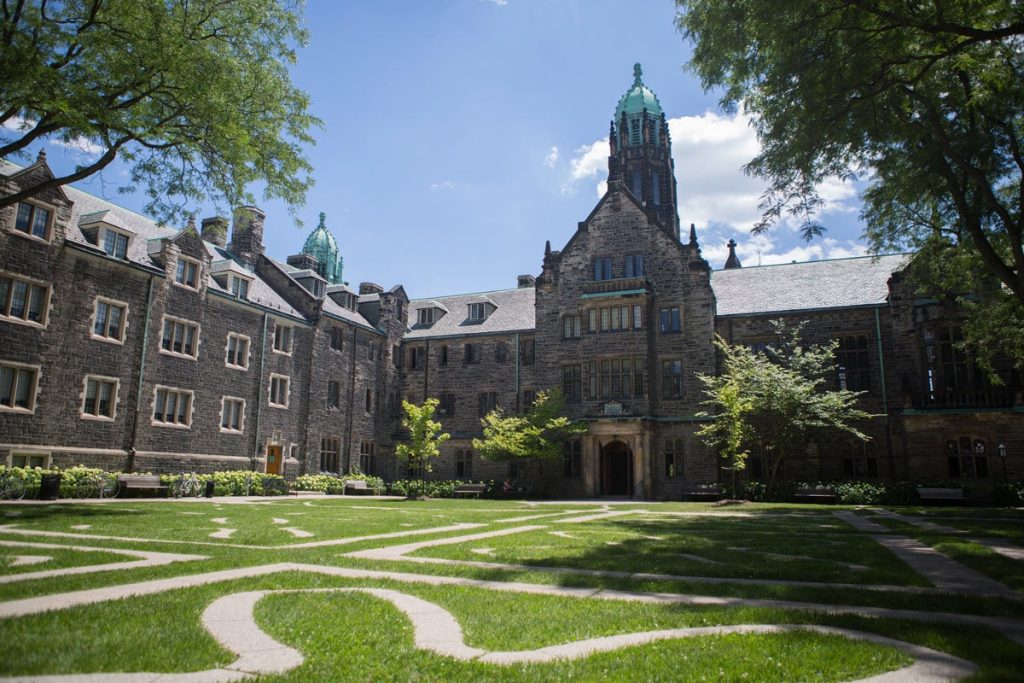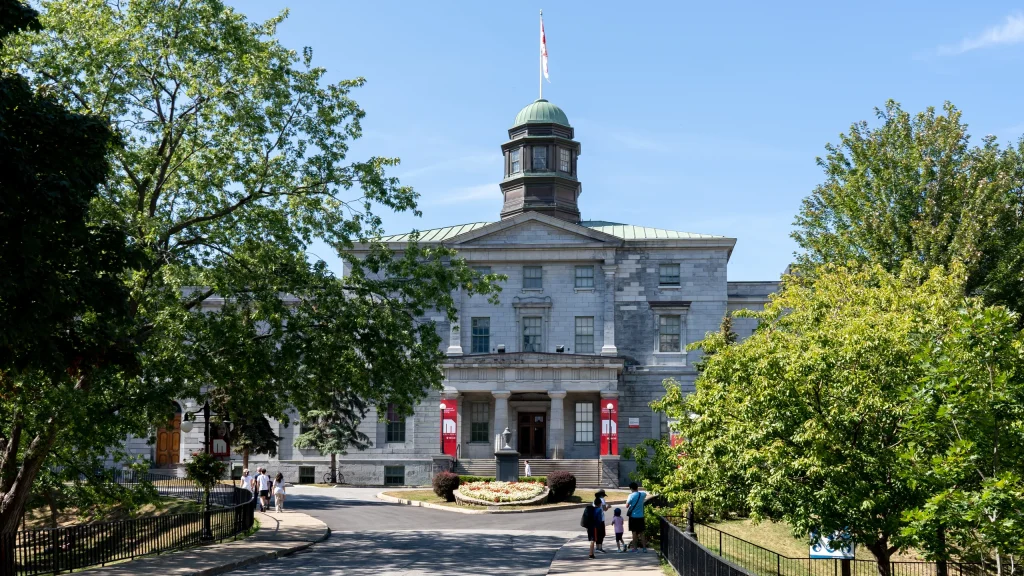Studying in Canada: A Comprehensive Guide for International Students
Canada, the second-largest country in the world by land area, is renowned for its breathtaking natural landscapes, high quality of life, and globally recognized educational institutions. With two official languages, English and French, Canada is a multicultural society that offers a diverse and inclusive environment, making it an ideal destination for international students. The country’s vibrant cities, such as Toronto, Vancouver, and Montreal, along with its world-class education system, make it a preferred choice for students from around the globe. This detailed guide will explore why studying in Canada is an excellent opportunity, covering universities, tuition fees, student life, and much more.

Why Study in Canada?
Canada is consistently ranked among the best places to live and study. According to the United Nations Human Development Index, Canada ranks 16th globally, and it is also in the top 20 countries in the World Happiness Report. These rankings reflect not only the quality of education but also the living conditions, safety, healthcare, and opportunities for personal growth that Canada offers.
1. High-Quality Education System
Canadian universities are known for their academic excellence, cutting-edge research opportunities, and diverse program offerings. Institutions like the University of Toronto, McGill University in Montreal, and the University of British Columbia in Vancouver are consistently ranked among the top 100 universities in the world. This level of academic prestige means that degrees earned in Canada are recognized internationally and can open doors to global opportunities.
The country offers both undergraduate and graduate programs in a wide range of disciplines, taught in both English and French. The opportunity to study in either language is a significant advantage for international students, providing a unique bilingual experience. Moreover, Canada’s universities are particularly strong in fields such as engineering, business, environmental sciences, and health sciences.
2. Multicultural Environment
One of Canada’s most defining features is its multiculturalism. As a country that embraces diversity, Canada provides a welcoming atmosphere for students from different cultural backgrounds. Cities like Toronto, Vancouver, and Montreal are home to a large number of immigrants and international students, making them vibrant places to live. International students can expect to meet people from around the world, which not only enhances their cultural awareness but also provides invaluable networking opportunities.
3. Work Opportunities for Students
Canada offers international students numerous opportunities to work while studying. Students are permitted to work part-time during their studies and full-time during scheduled breaks, which can significantly help in managing living expenses. Additionally, many universities have co-op programs that allow students to gain paid work experience in their field of study, thus providing them with valuable practical skills before graduation.
Top Universities in Canada
Canada has over 90 universities offering a variety of programs for both local and international students. Let’s look at some of the top universities in Canada:

1. University of Toronto
- Location: Toronto, Ontario
- Overview: The University of Toronto (U of T) is Canada’s top-ranked university and is often considered among the best in the world. It offers a wide range of programs, with notable strengths in medicine, engineering, and computer science.
- Key Features: U of T is known for its research output and innovation, housing more than 500,000 alumni across the world.
- Student Life: Located in the heart of Toronto, students enjoy a bustling city environment, filled with opportunities for networking, internships, and cultural experiences.

2. McGill University
- Location: Montreal, Quebec
- Overview: McGill University is one of the oldest and most prestigious institutions in Canada. It offers programs in both English and French and is known for its diverse student population.
- Key Features: McGill is particularly strong in the health sciences and law, and it has a large international community, with students from over 150 countries.
- Student Life: Montreal is known for its European charm, cultural festivals, and affordability, making it a popular destination for international students.

3. University of British Columbia (UBC)
- Location: Vancouver, British Columbia
- Overview: UBC ranks highly among global universities and offers a beautiful campus along the Pacific coast. It is known for its commitment to sustainability and research excellence.
- Key Features: UBC provides a range of programs across disciplines, with notable expertise in environmental science, forestry, and social sciences.
- Student Life: Vancouver is one of Canada’s most scenic cities, offering a blend of urban sophistication and access to nature, which makes student life here dynamic and enriching.
Tuition Fees and Cost of Living
The cost of studying in Canada can vary depending on the university, program, and location. On average, international students can expect to pay around 32,000 CAD annually for tuition fees. However, fees can vary significantly based on the program:
- Engineering, Medicine, and Veterinary Science: Typically more expensive, with annual fees ranging from 40,000 CAD to 60,000 CAD.
- Business, Management, and Arts: Generally more affordable, with fees between 25,000 CAD and 35,000 CAD.
In addition to tuition, students need to consider living expenses, which can also vary depending on the city. Toronto and Vancouver are among the more expensive cities, with costs for accommodation, food, and transport totaling around 15,000 to 20,000 CAD per year. Smaller cities like Halifax or Winnipeg offer lower living costs, making them a great option for budget-conscious students.
Estimated Living Costs per Month
| Expense | Average Monthly Cost (CAD) |
|---|---|
| Accommodation (rent) | 800 – 1,500 |
| Food | 300 – 600 |
| Transportation | 100 – 150 |
| Health Insurance | 50 – 100 |
| Miscellaneous (entertainment, etc.) | 200 – 400 |
Admission Requirements for Canadian Universities
To apply to a Canadian university, students must meet specific academic and language proficiency requirements. These include:
1. Academic Qualifications
- High School Diploma: For undergraduate programs, applicants must provide proof of high school graduation, along with transcripts.
- Bachelor’s Degree: For graduate programs, students need to have completed an undergraduate degree.
- Relevant Coursework: Some programs may require specific prerequisite courses.
2. Language Proficiency
Depending on the program language, students must demonstrate proficiency in either English or French. For English programs, the most commonly accepted tests are:
- IELTS Academic: Scores of 6.5 or higher are generally required.
- TOEFL iBT: A score of at least 90 is typically needed.
- PTE Academic: Accepted by many institutions, with scores usually ranging from 58 to 65.
For French programs, students may need to take:
- TEF (Test d’Évaluation de Français)
- DALF/DELF: These diplomas attest to French language proficiency.
How to Apply
The application process for Canadian universities can vary, but it generally involves:
- Research: Identify the universities and programs of interest.
- Check Requirements: Ensure you meet the academic and language criteria.
- Gather Documents: Prepare academic transcripts, language test scores, a statement of purpose, letters of recommendation, and proof of funds.
- Submit Application: Most universities use online application portals. Pay attention to deadlines, which can be 8-12 months before the program start date.
- Apply for a Study Permit: Once accepted, international students must apply for a study permit to legally study in Canada.
Scholarships and Financial Aid
There are several scholarships available for international students in Canada, including those offered by universities, the government, and private organizations. Some popular scholarships include:
- Vanier Canada Graduate Scholarships: Aimed at doctoral students with exceptional academic achievements.
- Ontario Graduate Scholarship: Available to graduate students studying in Ontario.
- Lester B. Pearson International Scholarships: Offered by the University of Toronto to recognize exceptional international students.
These scholarships can significantly reduce the financial burden for students and make studying in Canada more accessible.
Student Life in Canada
Studying in Canada is more than just academics. It’s also about embracing a unique cultural experience and enjoying a high quality of life. Canada is known for its hospitality and safe environment, and cities like Montreal and Vancouver frequently appear on lists of the most livable cities in the world.
1. Extracurricular Activities
Universities in Canada offer a wide range of extracurricular activities, including student clubs, sports teams, and volunteer organizations. Joining these groups helps students make friends, learn new skills, and engage more deeply with the university community.
2. Exploring the Outdoors
Canada’s natural beauty is another major attraction for international students. From the stunning Rocky Mountains to the picturesque coastlines of the Atlantic and Pacific oceans, there are plenty of opportunities for outdoor activities such as hiking, skiing, and kayaking. Popular destinations like Banff National Park, Jasper National Park, and Niagara Falls offer students an opportunity to explore Canada’s natural wonders.
3. Cultural Festivals
Canada hosts numerous cultural festivals throughout the year, reflecting its rich multicultural heritage. For instance, Toronto’s Caribana, Montreal’s Jazz Festival, and Vancouver’s Dragon Boat Festival are just a few examples of events that allow students to experience Canadian culture while celebrating the diversity of the country.
Conclusion
Studying in Canada is a life-changing experience that combines academic excellence with a rich cultural and social environment. With a wide range of universities to choose from, diverse programs, and a welcoming atmosphere, Canada provides international students with opportunities for both personal and professional growth. Whether you are interested in pursuing an undergraduate degree, a master’s, or a doctoral program, Canada offers the resources, support, and education quality that can help you achieve your goals.
If you are considering studying in Canada and need more information, you can visit university websites, connect with Canadian education consultants, or explore our other related articles such as “Life as an International Student in Canada” and “How to Secure Scholarships for Studying in Canada.”
Ready to take the next step towards studying in Canada? Start by researching programs that interest you and checking admission requirements. Don’t forget to explore scholarship opportunities to help fund your education. For more tips and guidance, check out our detailed articles on studying abroad in Canada and make your dream a reality!

